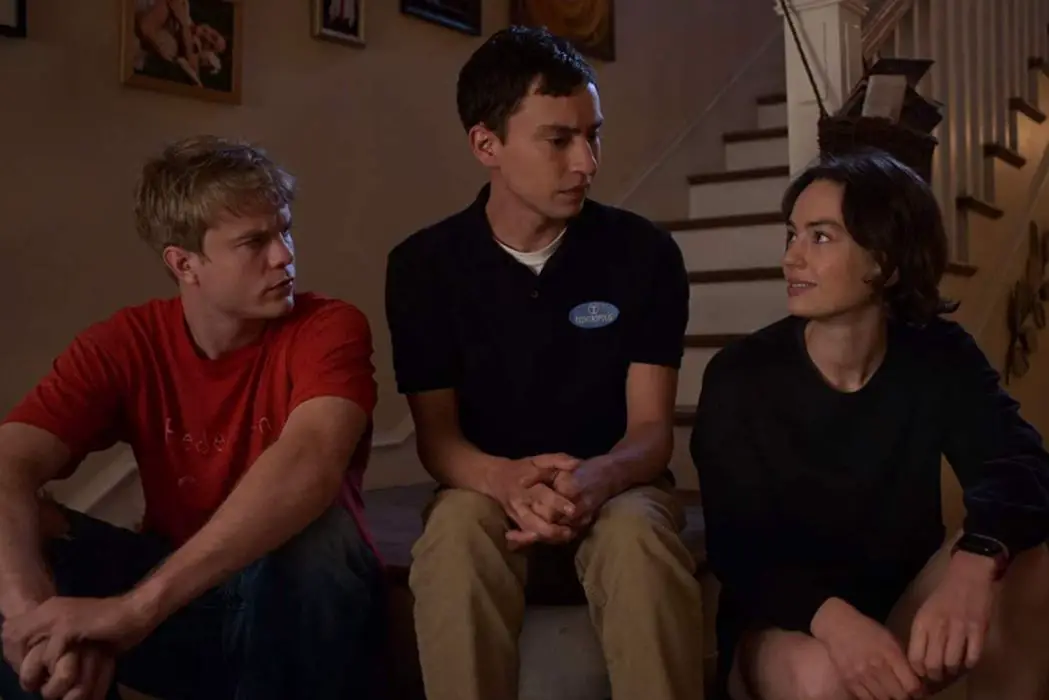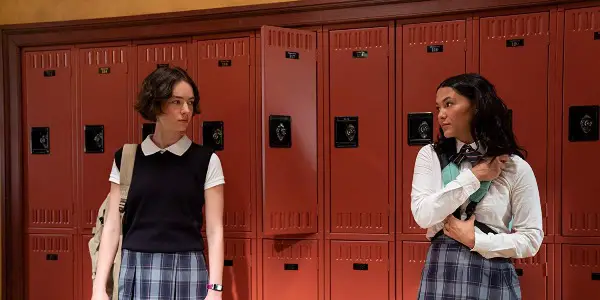ATYPICAL Season 3: Slow Start Proves Worthwhile In The End

Holly is a final year film/journalism student currently living in…
The first two seasons of Netflix’s Atypical were met with considerable critical and wider audience acclaim, achieving a respectful Rotten Tomatoes score and largely positive reviews from respected critics. Following the story of ASD diagnosed Sam Garnder and his family as they navigate the challenges of autism, Atypical paints a realistic depiction of a regular, upper-middle-class family. Though Sam has always been the central character and protagonist, the show affords each member of the family a unique story-line and side-plot that allows for in-depth character exploration.
When we last left the world of Atypical, Sam (Keir Gilchrist) had just successfully graduated high school – figuring out his plans for college and reconciling with his neurotic girlfriend Paige (Jenna Boyd) in the process. Meanwhile, his sister Casey (Brigette Lundy-Paine) was grappling with her buried feelings for her school-mate and best friend Izzie, (Fivel Stewart) and their parents Elsa (Jennifer Jason Leigh) and Doug (Michael Rapaport) were taking steps towards healing their broken marriage.
Slow and steady wins the race
The first few episodes of the latest season are slow-paced and lacking in substance – the majority of the run-time spent reminding us where we left off, meaning things take a while to really get started. By mid-way through the season, however, Atypical is back in full form and shining – delivering on the charm, humour, and nuanced tone it has brought so often in the past. While it initially feels as though this latest season won’t live up to expectations, these concerns are quickly diminished and binging the show becomes effortless. Thanks to two seasons of effective character development and endearing performances, these characters and this lovable, sometimes dysfunctional family of four have found their way into our hearts.

Sam’s initial naivety and desire to fit in upon entering college is well-handled and grounded in reality (aside from an overly stern tutor who shames him on his first day), with some important messages around disability services and support systems for neurodivergent college students. As a well-developed protagonist who has depth and motivations we can empathize with, his triumphs are satisfying (successfully involving himself in a class debate) and we feel for him when things don’t go his way.
His perseverance and determination to succeed are inspiring, as is actor Keir Gilchrist’s reverential interpretation of a young adult understandably fumbling his way through the developmental stages of adolescence. A small contrivance is Sam’s relationship with Paige; whilst the rest of the characters in the show feel immensely lived in and relatable as people, Paige’s over the top demeanour and overtly intense personality feel like a caricature at times – used simply as a contrast to those around her. As a result, their relationship feels under-developed and forced at points throughout the season with some genuinely touching moments scattered throughout.

The dynamics of relationships are heavily explored in this season, and while previous seasons managed to handle multiple storylines in a concentrated, succinct way, season three feels as though it’s juggling too much in terms of narrative. Alongside Doug and Elsa’s marriage and Casey’s relationships with her boyfriend Evan (Graham Rogers) and crush Izzie, we also have Paige’s social failures at college, Zahid’s new girlfriend and his falling out with Sam, Evan’s career, Casey’s reluctance to commit to athletics, and Izzie’s troubled home-life. Additionally, we have Sam’s general, ongoing challenges with college and his relationship with Paige. It’s a lot and the transitions between them don’t always feel as smooth as they did in the first two seasons.
Atypical season 3: The take-away
Still, the standout and more resonant of these is Casey discovering her sexuality. Though her relationship with Evan is delicately depicted as loving and respectful, her heated feelings for Izzie won’t be ignored. In a lesser version of the show, the two would be pitted against each other and painted as misogynistic (Evan) or promiscuous (Izzie), but in this case, the conflict ultimately lies within Casey herself, who has to make a difficult decision between two people she cares for deeply. Actress Brigette Lundy-Paine proves herself as a truly talented actor, particularly in a heart-wrenching scene between her and Evan where she finally comes to grips with the painful decision she has made. This scene and many others show the understanding and quality of the writers, as the dialogue feels consistently realistic and powerful – rarely coming across as cliched.
Technically speaking, the show is unremarkable but not incompetent; the style and voice mean the series is character and performance-driven and the uninspired camerawork is ultimately not a hindrance. The dramatic and comedic beats almost always hit the right notes and know when a shift in tone is required. Though plot-wise the series is somewhat formulaic and uses many tropes from the drama/comedy genre, its utilization and handling of these – alongside the strong writing and performances – make it a step up from many shows of the same variety and a worthwhile viewing experience.
Atypical Season 3 is available on Netflix.
Does content like this matter to you?
Become a Member and support film journalism. Unlock access to all of Film Inquiry`s great articles. Join a community of like-minded readers who are passionate about cinema - get access to our private members Network, give back to independent filmmakers, and more.
Holly is a final year film/journalism student currently living in Queensland, Australia. She is an all-around movie enthusiast, though currently her favourite directors include Wes Anderson, Martin McDonagh, and Alfonso Cuarón.













